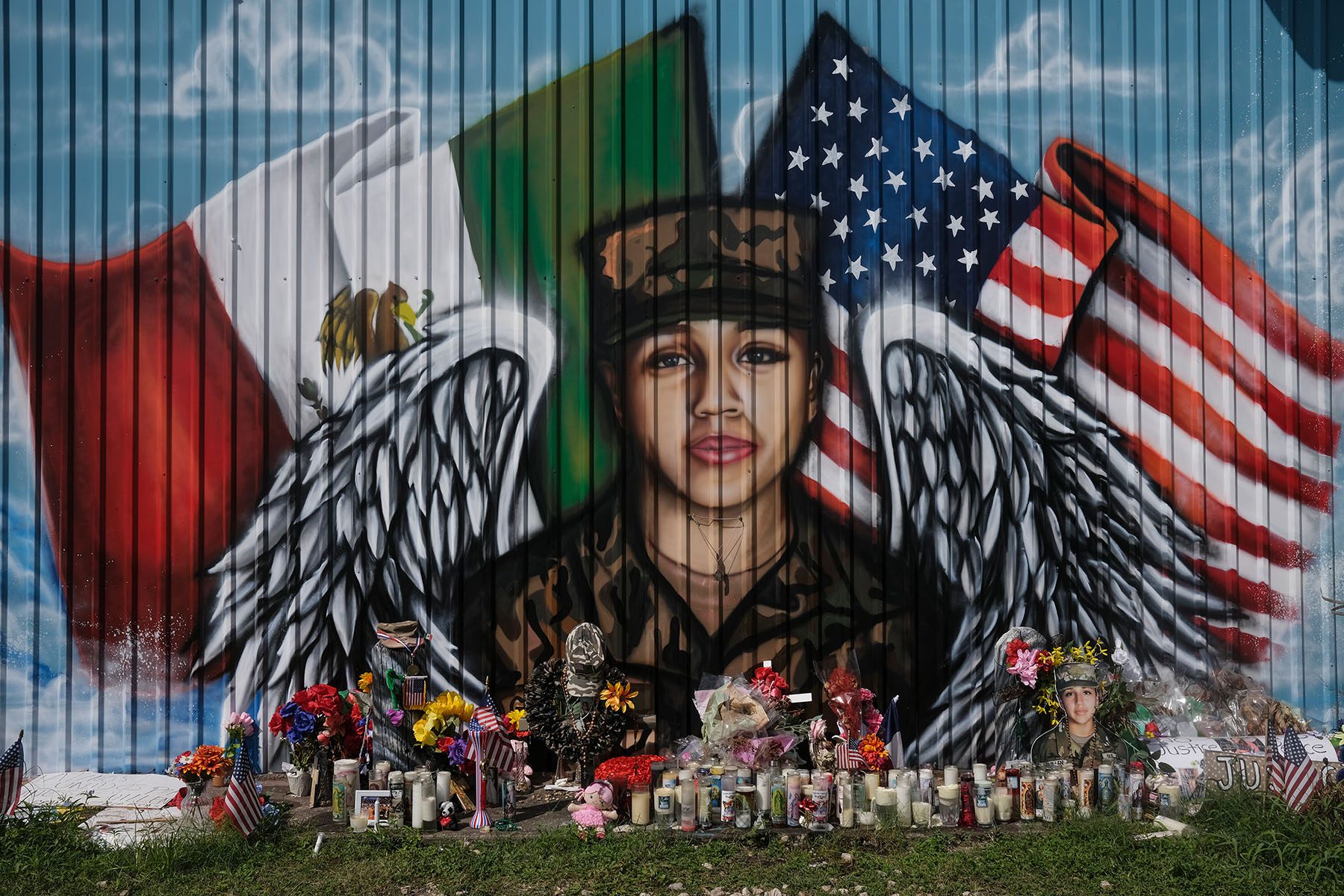Mayra Guillén knew something was wrong when she didn’t hear from her younger sister, a soldier stationed at Fort Hood, Texas. The eldest of six, Guillén, then 21, immediately drove three hours from Houston to check on her 20-year-old sister, Vanessa. That was in April 2020. For months, Guillén, with the help of a local nonprofit, searched the surrounding terrain on foot, around lakes and in difficult-to-navigate wooded areas.
“We were on our own,” Guillén said. Her family felt that the military was not listening to them — just as they felt when they had said Vanessa was sexually harassed by a supervisor. “They wouldn’t let us search within the base and even warned us not to do our own search, but of course we weren’t just going to sit back and wait for an answer from them.”
Guillén said she felt angry and frustrated with the military’s inaction and lack of transparency while searching for her sister. Vanessa’s remains were eventually discovered months later near a river about 20 miles from the base. Investigators detained a fellow soldier suspected of beating her to death, but he shortly escaped and fatally shot himself. Separately, military officials determined about one year after Vanessa’s death that she had also been harassed by a different soldier.
Guillén began speaking out and calling for military justice reform because she didn’t “want to ever see something like what happened with my sister happen to any other victims.” Her sister’s gruesome death sparked public outcry and legislative reform. More than a dozen U.S. Army commanders and leaders at Fort Hood were fired or suspended.

Rep. Jackie Speier, a California Democrat who has been pushing for change in military sexual assault and harassment investigations for about a decade, called Vanessa’s death an “impetus for many in Congress” to recognize that the military had deep-seated problems. It led to major changes to military justice, via last year’s National Defense Authorization Act (NDAA). Now Speier is introducing a bill to help victims of sexual harassment, an offense now defined and punishable according to the recently updated military code.
“In her murder, Vanessa Guillén has changed the face of the prosecution of sexual assault and sexual harassment in the military,” Speier said. “Her family has been a profound source of advocacy, and one of her sisters, Mayra, had said to me after the [NDAA] passed and became law that she could finally sleep at night.”
The NDAA guaranteed that certain crimes would be prosecuted outside the chain of command, including sexual assault, domestic violence, murder, manslaughter and kidnapping cases. But sexual harassment is still prosecuted without independent investigations.
On Friday, the two-year mark since Vanessa’s murder, Speier introduced legislation that would ensure military sexual harassment complaints are investigated by independent prosecutors outside the chain of command.
The new legislation, the Sexual Harassment Independent Investigations and Prosecutions Act, currently has bipartisan support in the House and is being sponsored in the Senate by Democrat Mazi Hirono of Hawaii. Speier said she plans to push the measure both as a standalone bill and as part of the 2023 NDAA.
“Sexual harassment begets sexual assault,” said Speier, chair of the House Armed Services Military Personnel subcommittee. “And in the case of Vanessa, she had been sexually harassed by a sergeant. She had reported it up the chain and nothing was done about it, so she really epitomizes why it’s important to take sexual harassment cases out of the chain of command.”

More than half of the women in the military report experiencing harassment, according to a 2016 analysis published in the peer-reviewed journal Trauma, Violence and Abuse. And the vast majority of incidents likely go unreported, according to recent surveys.
“This is a major step in the right direction, but there’s still a long way to go to actually address sexual violence in the military,” Lindsey Knapp, co-leader of Red, White and Bruised, a campaign demanding changes to how military sexual violence is handled, said in a statement.
Democratic Sen. Kirsten Gillibrand, another legislator who has been working on this issue for nearly a decade, sought to include the Military Justice Improvement and Increasing Prevention Act in the 2022 NDAA. The provision, which was stripped from the bill in last-minute negotiations, would have ensured independent prosecutors handle all felony offenses more broadly and could avoid creating a “pink court” that might further stigmatize women service members who experience sexual assault and harassment.
Mayra Guillén said she is glad that some change has been made but that more needs to be done. She argued any form of sexual harassment or assault should be criminalized, investigations kept completely separate from the chain of command and more accountability should be implemented to deter retaliation against victims.
In June 2020, Guillén and her family were driving to Washington, D.C., to meet with then-President Donald Trump when she got a call. Her sister’s remains had been found. Guillén said she raced to a location away from her parents to process the news, unwilling to let her parents see her tears. It was her birthday, and Guillén said it felt like a gift from Vanessa to know she was found.
“I know she’d be very happy to see what we’ve been able to do,” Guillén said. “I can already picture her telling me just how proud she is that we were able to put our feelings aside and not take no for an answer.”








